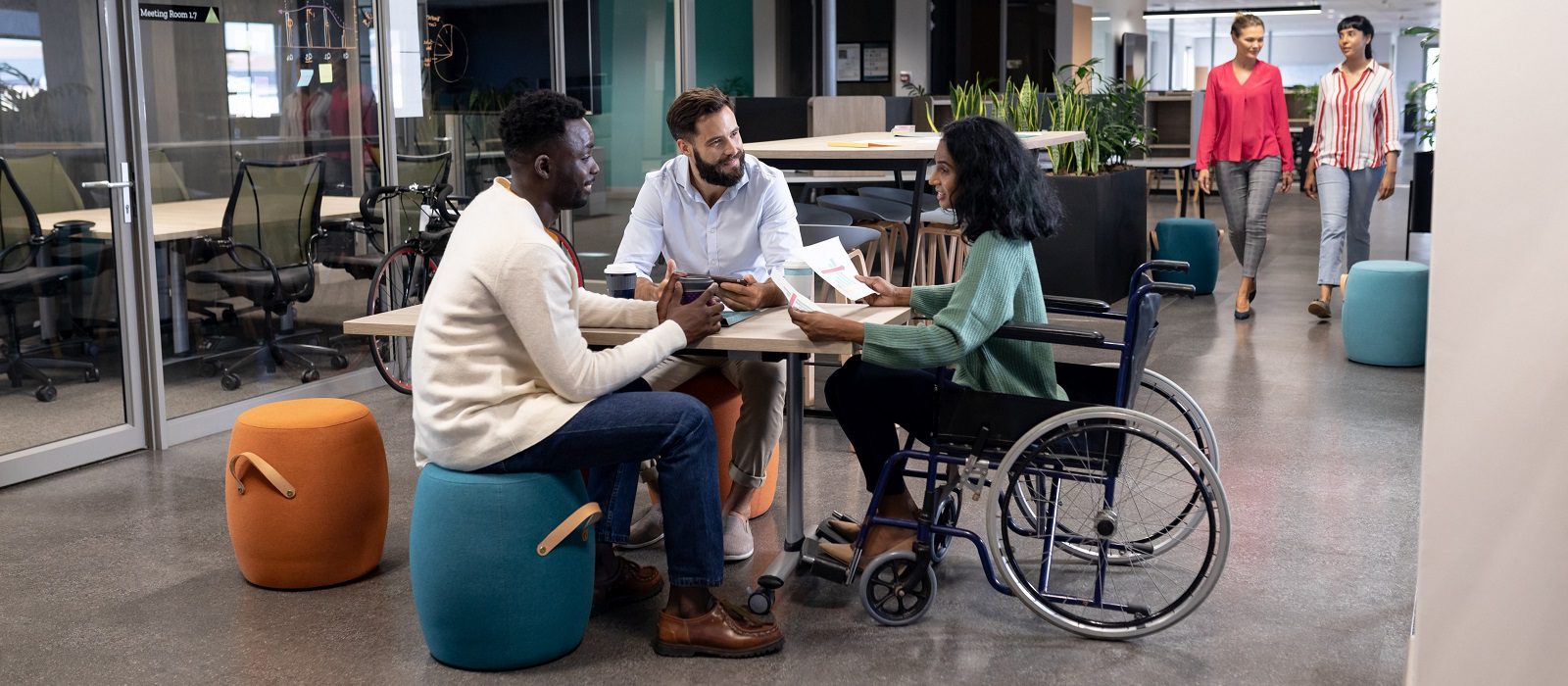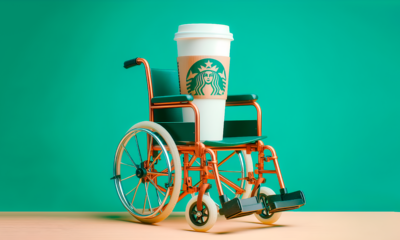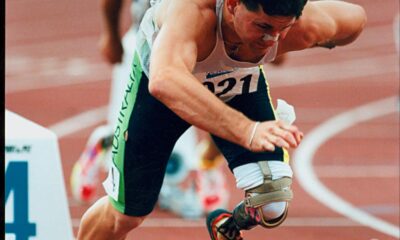Business
Obstacles in the Workplace and How to Overcome Them

Obstacles in the workplace are only obstacles until you find a way around them
Whether you’ve been living with a disability your whole life or there has been a recent change in your health that you’re still getting to grips with, the workplace is notorious for throwing a spanner in the works when it comes to accessibility. And, workplaces are always as accommodating as you might hope.
Compared to their counterparts, people with impairments frequently have more difficulty getting employment. For instance, in 2021, just 19% of Americans with disabilities were employed in the United States and less than a third of Brits with a disability were employed.
So, let’s throw these unnecessary obstacles in the workplace to the curb to make sure as many people can enter employment as possible.
Tips on How to Overcome Obstacles as a Disabled Person at Work
Develop your confidence
Not all challenges are external. Your impairment may make you feel self-conscious and you may also doubt your value and job-related skills. But, in reality, there’s no need to worry about these things.
You can increase your self-assurance and become aware of your value to potential employers by taking the following action:
- Watch or read narratives about individuals who share your disability. You’ll probably discover that a large number of disabled people cannot only adapt but also thrive and prosper in society. When you’re down, use their experiences as motivation.
- Reduce your stress levels. According to research, stress may affect you more severely if you have low self-esteem. Put stress-reduction practices like sleeping well, socialising with loved ones and eating healthily first.
Recognize your impairment
Self-awareness has many benefits. Do all you can to understand your disability. How does the illness often develop? What are typical strategies for managing symptoms or lowering the chance of complications? Responding to inquiries like these might also help you get ready to express your wants to your employer and optimise your performance.
Accept assistive technology
There are many different tools available to make life easier for someone with a disability, ranging from canes and hearing aids to text-to-speech gadgets and memory aids. Use any tools that make your life simpler without feeling embarrassed, whether at work or in public. Be aware that you are not defined by these tools or any less deserving of respect as a result.
List your advantages
You can be inclined to become fixated on the restrictions your disability imposes. But keep in mind that you still possess some advantages. So, write them down, particularly any that have to do with your job. When you’re looking for a job or want to feel more confident, go over your list of strengths.
Do not be embarrassed to request assistance or new accommodations
It’s possible that you won’t be able to perform the same tasks as you once could. You might not be able to move objects around as rapidly or stand behind a counter for an extended amount of time as you once could. Look for accommodations that will improve your comfort and efficiency. You can even discuss other positions with your employer that you might be more suitable for.

© Getty Images
Look for new employment.
If your workplace isn’t offering you the correct accessibility changes to help make your day-to-day life a bit easier, consider finding somewhere that will.
This step is definitely easier said than done, and for some might not be an option. But, if you have the freedom to find a company more suited to your needs, it’s definitely worth trying.
Speak up for your needs.
Disability disclosure is a personal decision. You are therefore allowed to keep such information to yourself if it feels unnecessary to share it with a potential employer. However, it’s best to be open about your impairment if you’re going to need adjustments.
Any instrument or procedural modification that enables you to get around physical obstacles or unsuitable work schedules is an accommodation. Not only are accommodations available to current employees, but you can also request accommodations while you’re being interviewed.
Reasonable accommodations include parking spaces set aside for those with disabilities, braille materials for blind employees, adaptable beginning and ending times, gadgets that reduce background noise to reduce auditory distractions and written instructions with detailed steps available for those with memory problems.
Understand how to respond to unjust treatment at work
They might treat you too carefully, undervalue you, or even come off as aloof or awkward. The attitudes and beliefs of other people are beyond your control. However, you can take action to enhance workplace social interactions.
When necessary, express your condition and needs. The stigma around impairments is frequently brought on by misunderstandings or ignorance on the part of the general public. Discussing your impairment could make people feel more comfortable around you. For instance, you may let your employees know if you have autism and have trouble interpreting nonverbal indications. Once more, only divulge information if you feel at ease doing so.
Business
Starbucks and its commitment to accessibility: Creating inclusive spaces for everyone

Starbucks Coffee Company announced on February 14th that it will leverage its growing store presence to support and promote the inclusion of partners, clients, and communities it serves. To achieve this, the company has created an Inclusive Spaces Framework, which aims to enhance independence, choice, and comfort for all its consumers and employees: “Building and scaling an Inclusive Store Framework is central to our mission of connection and will lead to greater access for all” stated Katie Young, Senior Vice President of Store Operations.
One of the first Starbucks customers based on the Inclusive Spaces Framework/Starbucks
Starbucks’s Inclusive Spaces Framework has been developed by a distinctive community of customers, workers, partners, and accessibility experts, with the primary goal of providing scalable accessibility solutions for all commercial spaces. This concept began to take shape during the Covid-19 pandemic, where social distancing and the risk of contracting the disease prompted some branches to create specific time blocks. During these blocks, immunocompromised, elderly, and disabled customers could shop in a less crowded environment.
Starbucks inaugurates its first café supported by the principles of the Inclusive Spaces Framework
On February 16th, Washington, D.C. became the first city to open a Starbucks designed to provide accessible service for everyone. These innovations include a multitude of improvements, both physical and digital, that streamline the entire customer interaction process with the establishment and staff, enabling unrestricted access.
A new employee at the Washington D.C. Starbucks showcasing the facilities/Starbucks
Among these novelties, the coffee company has highlighted updates to the point-of-sale (POS) systems, which have been transformed into portable devices, making it easier for customers to make purchases and acquire products. Through an intuitive design, supported by a voice assistant and accompanied by visual confirmations, this setup caters to the needs of all customers without any distinction.
On the other hand, this revamped store features new lighting and an improved sound system, both designed to offer a more inclusive experience by avoiding glare and reverberations. Additionally, the order tracking panels in this store have been updated, allowing customers to easily and instantly know which stage of preparation their purchase is in. Furthermore, multiple communication channels have been enabled to notify the customer when their order is ready.
Finally, the store has been designed to ensure the complete independence of people with disabilities when accessing and placing their orders. This is achieved through electric doors, which can be activated by a button at different heights and angles, reducing the effort required to open them. Additionally, continuous, and obstacle-free pedestrian pathways have been created, and the counters are lower with overhangs to accommodate wheelchairs, making interaction with employees and the store more accessible.
The new staff at Starbucks in Washington D.C./Starbucks
However, for most retail centers, remodelling their premises to comply with ADA (The Americans with Disabilities Act) regulations poses a significant challenge. That’s why Starbucks will not only begin remodelling its establishments but also ensure that its framework of inclusion is accessible to everyone, just like its stores. This framework will provide a gradual program for designing inclusive spaces that enhance the retail environment, surpassing the requirements of the ADA.
By: Álvaro Lago
For latest updates Download P+us app available on Google App Store
Business
Aarti Sahgal: Creating A World In Which People With Disabilities Belong

Aarti Sahgal is a woman with a mission. She is the founder and CEO of Synergies Work, a non-profit organization that helps entrepreneurs with disabilities develop sustainable enterprises. She is also a mother to two kids, one of whom has Down syndrome. She understands directly the obstacles and opportunities that individuals with disabilities experience in society, and she is committed to creating a world in which they belong.
Sahgal’s work grew out of her personal experience parenting a disabled child and discovering a lack of inclusivity and assistance in the education and employment systems. She recognized that people with disabilities possess special skills and capabilities that are frequently overlooked or underestimated by others. She chose to leave her corporate position and devote herself to enabling people with disabilities to achieve their hobbies and goals.

Synergies work provides end-to-end business solutions, bridging the opportunity gap between the disability and business sectors. It provides training, mentoring, funding, and networking opportunities for entrepreneurs with disabilities, as well as access to a varied and supportive community. It also collaborates with businesses and groups to increase disability inclusion and diversity in the workplace and marketplace.
Since its establishment in 2016, Synergies Work has assisted over 200 entrepreneurs, the vast majority of whom are women and people of color. The company aims to empower 1 million new entrepreneurs with disabilities by 2027 by collaborating with disability organizations and businesses that prioritize creating an inclusive ecosystem.
Sahgal aims to represent and reflect the different communities in which she works, as well as to foster a workplace climate in which everyone has the opportunity to participate, grow, belong, and succeed. Sahgal’s Disability Inclusion Action Plan aims to promote inclusivity and diversity as a source of strength and value.
By- Rowland Obiosah
Business
Unveiling P+US App (Plus News): A Revolutionary Leap in Inclusive Media!

In a groundbreaking move towards a more diverse and connected media landscape, the Brand Advance Group (BA Group) has just launched its latest venture – the P+US App, affectionately known as Plus News. This app is set to redefine the way the group’s audience can consume its news, serving as a dynamic platform bringing together voices from various communities, including Black & African American, Afrobeats, Hispanic, LGBTQ+, disABILITY, GenZ, and beyond.
This initiative is just the first step in the rollout of a new generation of media channels by the BA Group and its US Division, BA Diversity Media Inc. The P+US app stands at the forefront, embodying the commitment to amplify minority-owned and operated media.

To celebrate this monumental launch, the BA Group is extending exclusive invitations to the Generation Black and Generation Hispanic TV channel launch party. The first 100 individuals to download the app and share it within their circles will secure a coveted spot at this must-attend event, scheduled to unfold in the vibrant landscapes of both NYC and London come March 2024.
BA Group’s CEO, a visionary in the media industry, expressed enthusiasm about this transformative leap. “Launching this app to house our minority-owned and operated media is the first stage of our transition from an SSP business to a media owner for a new generation. With over 7 digital channels and 3 CTV channels, all powered by our cutting-edge Cultural Intelligence technology, the P+US app provides our readers with a seamless, centralized space to engage with our diverse content. From the streets of Africa to the landscapes of India, the urban beats of the UK to the vibrant scenes in Mexico – our talented writers from across the globe are bringing a fresh perspective to every news article. It’s an exciting time in our evolution!”
As we step into this new era of media, the P+US app promises not just news but an immersive journey into the diverse narratives that shape our world. Join the revolution, download P+US, and be part of the story as it unfolds from the heart of communities worldwide!
Google App Store:
https://play.google.com/store/apps/details?id=com.newandromo.dev2408362.app3483231


















